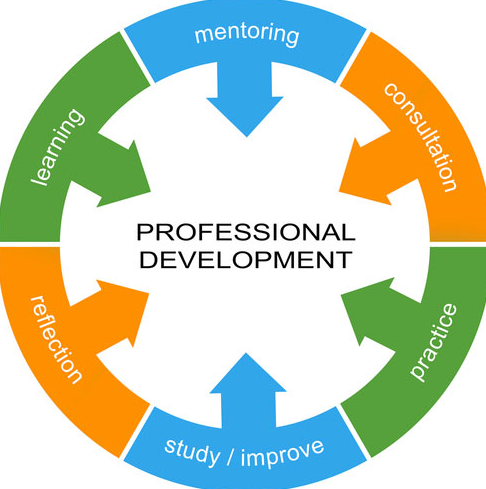Time Management
Definition
“Time
management” is the process of organizing and planning how to divide your time
between specific activities. Good time management enables you to work smarter –
not harder – so that you get more done in less time, even when time is tight
and pressures are high. Failing to manage your time damages your effectiveness
and causes stress.
It
seems that there is never enough time in the day. But, since we all get the
same 24 hours, why is it that some people achieve so much more with their time
than others? The answer lies in good time management.
The
highest achievers manage their time exceptionally well. By using the
time-management techniques in this section, you can improve your ability to
function more effectively – even when time is tight and pressures are high.
Good time management requires an important shift in focus from
activities to results: being
busy isn’t the same as being effective. (Ironically, the
opposite is often closer to the truth.)
Spending
your day in a frenzy of activity often achieves less, because you’re dividing
your attention between so many different tasks. Good time management lets you
work smarter – not harder – so you get more done in less time.
What Is Time Management?
“Time
management” refers to the way that you organize and plan how long you spend on
specific activities.
It may
seem counter-intuitive to dedicate precious time to learning about time
management, instead of using it to get on with your work, but the benefits are
enormous:
·
Greater productivity and efficiency.
·
A better professional reputation.
·
Less stress.
·
Increased opportunities for advancement.
·
Greater opportunities to achieve important life and career
goals.
Failing
to manage your time effectively can have some very undesirable consequences:
·
Missed deadlines.
·
Inefficient work flow.
·
Poor work quality.
·
A poor professional reputation and a stalled career.
·
Higher stress levels.
Spending
a little time learning about time-management techniques will have huge benefits
now – and throughout your career.
Key Points
Time management is the process of organizing and planning how
much time you spend on specific activities. Invest some time in our
comprehensive collection of time management articles to learn about managing
your own time more efficiently, and save yourself time in the future.
How Good
Is Your Time Management?
How often do you find
yourself running out of time? Weekly, daily, hourly? For many people, it seems
that there's just never enough time in the day to get everything done. When you know how to manage your time you gain control of what
you achieve.
Take
this self-test quiz to identify the aspects of time management that you need
most help with. The results will point you to the specific tools that will help
you to work more efficiently.
Goal Setting
To start managing time
effectively, you need to set goals. When you know where you're going, you can
then figure out what exactly needs to be done, in what order. Without proper
goal setting, you'll fritter your time away on a confusion of conflicting
priorities.
People tend
to neglect goal setting because it requires time and effort. What they fail to
consider is that a little time and effort put in now saves an enormous amount
of time, effort and frustration in the future. Mind Tools has two great
articles on goal setting that are must-reads for everyone. If you are serious
about time management, we suggest you start with Personal Goal Setting and The Golden Rules of Goal
Setting . We also
recommend Treasure Mapping .
Prioritization
Prioritizing what needs to
be done is especially important. Without it, you may work very hard, but you won't
be achieving the results you desire because what you are working on is not of
strategic importance.
Most people have a
"to-do" list of some sort. The problem with many of these lists is
they are just a collection of things that need to get done. There is no rhyme
or reason to the list and, because of this, the work they do is just as
unstructured. So how do you work on To Do List tasks – top down, bottom up,
easiest to hardest?
To work
efficiently you need to work on the most important, highest value tasks. This
way you won't get caught scrambling to get something critical done as the
deadline approaches. For information on how to start prioritizing your tasks.
Managing Interruptions
Having a
plan and knowing how to prioritize it is one thing. The next issue is knowing
what to do to minimize the interruptions you face during your day. It is widely
recognized that managers get very little uninterrupted time to work on their
priority tasks. There are phone calls, information requests, questions from employees,
and a whole host of events that crop up unexpectedly. Some do need to be dealt
with immediately, but others need to be managed. Our article on Managing Interruptions discusses how
you can minimize your interrupted time.
However, some jobs need you to be available for people
when they need help – interruption is a natural and necessary part of
life. Here, do what you sensibly can to minimize it, but make sure you don't
scare people away from interrupting you when they should.
Procrastination
"I'll get to it
later" has led to the downfall of many a good employee. After too
many "laters" the work piles up so high that any task seems
insurmountable. Procrastination is as tempting as it is deadly. The best way to
beat it is to recognize that you do indeed procrastinate. Then you need to
figure out why. Perhaps you are afraid of failing? (And some people are
actually afraid of success!)
Once you
know why you procrastinate then you can plan to get out of the habit. Reward
yourself for getting jobs done, and remind yourself regularly of the horrible
consequences of not doing those boring tasks! For more help on recognizing and
overcoming procrastination see our guide to Beating Procrastination .
Scheduling
Much of time management comes down to effective
scheduling of your time. When you know what your goals and priorities are, you
then need to know how to go about creating a schedule that keeps you on track,
and protects you from stress.
This means understanding the factors that
affect the time you have available for work. You not only have to schedule
priority tasks, you have to leave room for interruptions, and contingency time
for those unexpected events that otherwise wreak chaos with your schedule. By
creating a robust schedule that reflects your priorities and well as supports
your personal goals, you have a winning combination: One that will allow you to
control your time and keep your life in balance. To learn specific scheduling
skills, see our articles on Pickle Jar Theory and Scheduling Skills .
Key
Points
Time
management is an essential skill that helps you keep your work under control,
at the same time that it helps you keep stress to a minimum.
We would all
love to have an extra couple of hours in every day. Seeing as that is
impossible, we need to work smarter on things that have the highest priority,
and then creating a schedule that reflects our work and personal priorities.
With this in place, we can work in a focused
and effective way, and really start achieving those goals, dreams and ambitions
we care so much about.
Source: Anonymous





0 Comments